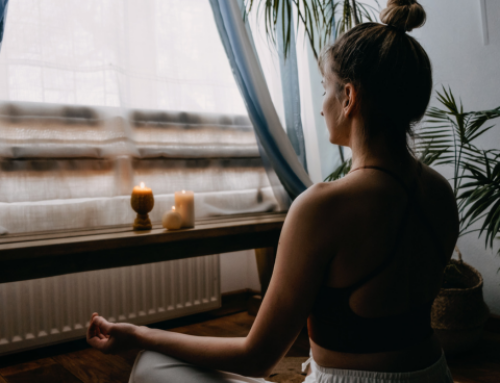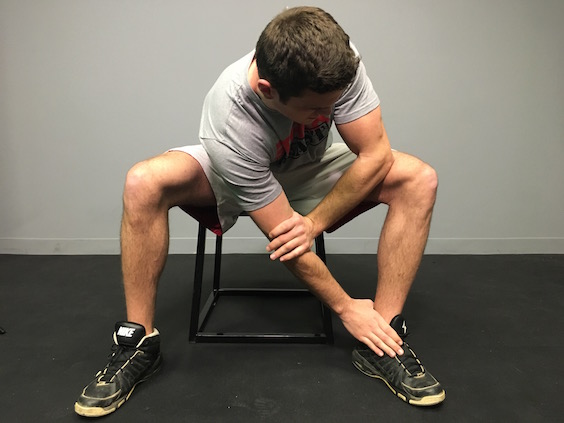Sleep and Sunlight: Why Athletes Need to Prioritize Both
Seeking that extra edge on and off the field? Improving dietary and exercise habits are common New Year’s resolutions, but athletes and non-athletes should also ensure they’re getting year-round adequate sleep and sunlight.
This powerful duo confers a number of important benefits for humans, as sleep and sunlight impact things like overall health, sports performance, recovery, muscle growth, fat-burning metabolism and body composition.
Sleep Recommendations
Heading to school, work or the gym on insufficient sleep can quickly backfire.
Optimal Sleep Time. University of California-San Francisco sleep expert Cheri Mah says, “For elite athletes, we recommend 8 to 10 hours-plus every night. For the everyday person, you’ve got to hit at least seven hours of rest every night. There are individual differences in daily sleep needs, however, you may need eight hours or nine-plus hours to feel rested and alert throughout the day.”
More Sleep Equals Better Sports Performance. Mah notes in her study on how sleep extension affects performance in college basketball players that longer sleep periods resulted in faster sprint times and better shooting accuracy the next day.
The Pros Are Reaping Sleep’s Benefits. From NHL teams to NBA, NFL and Major League Baseball organizations, staff health professionals are touting sleep’s effectiveness for their athletes.
“If you told an athlete you had a treatment that would reduce the chemicals associated with stress, that would naturally increase human growth hormone, enhances recovery rate, and improves performance, they would all do it. Sleep does all of those things,”Dallas Mavericks head athletic trainer Casey Smith told Mavs.com.
The performance-enhancing benefits of sleep simply cannot be ignored by teams looking to win. “We’re teaching our players sleep is a weapon,”Seattle Seahawks Director of Player Health and Performance Sam Ramsden told the Huffington Post.
Sleep Deprivation Risks
Decreased Physical and Mental Alertness, Increased Injury and Illness Potential. Sleep deprivation causes physical and mental fatigue, making athletes more prone to diminished alertness and reaction time, causing lackluster sports skills, poor workouts, increased injury risk, irritability, reduced recovery from workouts and sports and a greater susceptibility to illness such as colds and flu.
The July 2011 issue of the Clinical Journal of Sport Medicine found youth athlete injuries increased when an athlete slept less than six hours the previous night. Carnegie Mellon University and the University of Pittsburgh Medical Center researchers showed that non-athletes sleeping six hours or less per night were four times more likely to catch a cold compared to those getting seven or more hours.
Unwelcome Weight Gain. Another sleep-deprived negative: Just 30 minutes of sleep loss can cause unnecessary weight gain, according to Michael Breus, Ph.D. and author of The Sleep Doctor’s Diet Plan: Lose Weight Through Better Sleep. He writes that “the more sleep-deprived you are, the higher your levels of the stress hormone cortisol, which increases your appetite.”
Common Sense Productive Sleep Tips
Like a cell phone requiring re-charging, think of restorative sleep as re-charging your “battery” so you are energized for peak mental and physical performance the next day. Follow these general sleep guidelines:
Adapt a Consistent Sleep Cycle Schedule. Hitting the sack around the same time every night (including weekends) and awakening about the same time mornings adjusts your body to regular sleep cycles.
Don’t Substitute Working Out for Getting More Sleep. Incorporating exercise into busy schedules is essential. However, sleep along with nutrition merit equal importance for enabling sports, exercise and mental performance and recovery! It’s not unusual for many athletes and non-athletes alike to mistakenly wake earlier or go to bed later at night skimping on sleep to accommodate a workout—thinking exercise is more of a necessity than staying in bed to get the optimal eight to 10 hours. The beginning of a new year is a perfect time to alter that misconception and place sleep, nutrition and exercise on the same page.
Keep the Bedroom Comfortably Cool, Dark and Noise-Free. Lower the thermostat and window shades; slightly open the window for fresh air; and turn off cell phone, computer, TV and lights for undisturbed deep sleep.
Preventing Neck and Back Stiffness While Asleep And Upon Awakening. Replace an old pillow or mattress if necessary to better support the neck and back to deter stiffness while sleeping and arising.
Additional Spine-Friendly Sleep Suggestions. Also for proper spinal alignment, if sleeping on your side, place another pillow between your knees. If sleeping on your back, position the pillow under the knees.
No Big Meals or Caffeine. Avoid heavy meals and caffeinated beverages before bedtime for uninterrupted sleep.
Ease Into Sleep Mode From a Warm Bath, Shower or Light Meal. Taking a relaxing warm bath or shower before bed and/or having a light meal may help falling asleep easier.
Avoid Intense Exercise Before Bedtime. Plan workouts earlier during the day and not too close to bedtime which may interfere with falling asleep (you may be too energized or fidgety after high-intensity exercise to go to bed!)
Maximizing Natural Muscle-Building Growth Hormone During Deep Sleep. Sticking to these previously listed tips promotes deeper sleep throughout the night for releasing muscle-building/fat-burning natural growth hormone.
Valuable Sunlight
Particularly during the winter months, athletes compete in indoor sports such as basketball, wrestling and hockey, as well as train inside weight rooms. Spending more time indoors in gyms, class rooms and during practices and games means less sunlight-promoting vitamin D exposure for optimizing recovery, immune system and bone health, sports performance, and building muscle (via the natural release of vitamin D-boosting testosterone). Devoting more time in the great outdoors during daylight hours (not only during the upcoming winter months on sunny, cloudy or cold days but year-round) renders remarkably similar health and performance-enhancing properties as the aforementioned sleep.
Less Vitamin D Equals Greater Injury Risk/Poorer Sports Performance. A 2015 study in the American Journal of Sports Medicine showed that Pittsburgh Steelers players with low vitamin D levels had at least one bone fracture, and those released during pre-season from injury or poor performance also had very low levels of the “sunshine vitamin.”
Low Vitamin D Levels Equal Decreased Muscle Power. A 2009 New York Times article mentioned that a study of vertical jumping ability in adolescent athletes found that those with the lowest vitamin D levels did not jump as high, indicating “too little of the nutrient may impair muscle power.”
Less Sunlight Linked to Depression. Well-publicized Seasonal Affective Disorder (S.A.D.) typically occurs in areas receiving less sunlight during winter months and is linked to depression and moodiness. Simply increasing time outdoors in natural daylight—especially on sunnier days—may help prevent or minimize S.A.D. symptoms among athletes and non-athletes.
Be Healthy With More Sunlight and Fresh Air. Frequently getting outdoors during daytime is excellent for escaping germ-filled indoor environments (e.g., crowded gyms, schools, stores, offices) and staying healthy.
Triple Benefits of Daytime Outdoor Training. Periodically working out in sunshine has these three advantages:
- Sunshine-boosting testosterone triggering muscle growth.
- Doing challenging bodyweight or free weight exercises in sunlight provides a double dose of muscle-building testosterone!
- Occasionally training outdoors breaks conditioning plateaus and/or stale indoor workouts.
Suggestions: Do Push-Ups, Dips, Lunges, Step-Ups, Planks and Pull-Ups off outdoor stadium bleachers, park or playground benches and bars; or bring dumbbells or portable resistance cables outside for various weight training exercises!
Photo Credit: junial/iStock
READ MORE:
- Why Athletes Need More Vitamin D
- Think Sleep Doesn’t Matter? Many Seahawks Players Go to Bed Bedore 10 P.M.
- 18 Rules for Better Sleep
RECOMMENDED FOR YOU
Sleep and Sunlight: Why Athletes Need to Prioritize Both
Seeking that extra edge on and off the field? Improving dietary and exercise habits are common New Year’s resolutions, but athletes and non-athletes should also ensure they’re getting year-round adequate sleep and sunlight.
This powerful duo confers a number of important benefits for humans, as sleep and sunlight impact things like overall health, sports performance, recovery, muscle growth, fat-burning metabolism and body composition.
Sleep Recommendations
Heading to school, work or the gym on insufficient sleep can quickly backfire.
Optimal Sleep Time. University of California-San Francisco sleep expert Cheri Mah says, “For elite athletes, we recommend 8 to 10 hours-plus every night. For the everyday person, you’ve got to hit at least seven hours of rest every night. There are individual differences in daily sleep needs, however, you may need eight hours or nine-plus hours to feel rested and alert throughout the day.”
More Sleep Equals Better Sports Performance. Mah notes in her study on how sleep extension affects performance in college basketball players that longer sleep periods resulted in faster sprint times and better shooting accuracy the next day.
The Pros Are Reaping Sleep’s Benefits. From NHL teams to NBA, NFL and Major League Baseball organizations, staff health professionals are touting sleep’s effectiveness for their athletes.
“If you told an athlete you had a treatment that would reduce the chemicals associated with stress, that would naturally increase human growth hormone, enhances recovery rate, and improves performance, they would all do it. Sleep does all of those things,”Dallas Mavericks head athletic trainer Casey Smith told Mavs.com.
The performance-enhancing benefits of sleep simply cannot be ignored by teams looking to win. “We’re teaching our players sleep is a weapon,”Seattle Seahawks Director of Player Health and Performance Sam Ramsden told the Huffington Post.
Sleep Deprivation Risks
Decreased Physical and Mental Alertness, Increased Injury and Illness Potential. Sleep deprivation causes physical and mental fatigue, making athletes more prone to diminished alertness and reaction time, causing lackluster sports skills, poor workouts, increased injury risk, irritability, reduced recovery from workouts and sports and a greater susceptibility to illness such as colds and flu.
The July 2011 issue of the Clinical Journal of Sport Medicine found youth athlete injuries increased when an athlete slept less than six hours the previous night. Carnegie Mellon University and the University of Pittsburgh Medical Center researchers showed that non-athletes sleeping six hours or less per night were four times more likely to catch a cold compared to those getting seven or more hours.
Unwelcome Weight Gain. Another sleep-deprived negative: Just 30 minutes of sleep loss can cause unnecessary weight gain, according to Michael Breus, Ph.D. and author of The Sleep Doctor’s Diet Plan: Lose Weight Through Better Sleep. He writes that “the more sleep-deprived you are, the higher your levels of the stress hormone cortisol, which increases your appetite.”
Common Sense Productive Sleep Tips
Like a cell phone requiring re-charging, think of restorative sleep as re-charging your “battery” so you are energized for peak mental and physical performance the next day. Follow these general sleep guidelines:
Adapt a Consistent Sleep Cycle Schedule. Hitting the sack around the same time every night (including weekends) and awakening about the same time mornings adjusts your body to regular sleep cycles.
Don’t Substitute Working Out for Getting More Sleep. Incorporating exercise into busy schedules is essential. However, sleep along with nutrition merit equal importance for enabling sports, exercise and mental performance and recovery! It’s not unusual for many athletes and non-athletes alike to mistakenly wake earlier or go to bed later at night skimping on sleep to accommodate a workout—thinking exercise is more of a necessity than staying in bed to get the optimal eight to 10 hours. The beginning of a new year is a perfect time to alter that misconception and place sleep, nutrition and exercise on the same page.
Keep the Bedroom Comfortably Cool, Dark and Noise-Free. Lower the thermostat and window shades; slightly open the window for fresh air; and turn off cell phone, computer, TV and lights for undisturbed deep sleep.
Preventing Neck and Back Stiffness While Asleep And Upon Awakening. Replace an old pillow or mattress if necessary to better support the neck and back to deter stiffness while sleeping and arising.
Additional Spine-Friendly Sleep Suggestions. Also for proper spinal alignment, if sleeping on your side, place another pillow between your knees. If sleeping on your back, position the pillow under the knees.
No Big Meals or Caffeine. Avoid heavy meals and caffeinated beverages before bedtime for uninterrupted sleep.
Ease Into Sleep Mode From a Warm Bath, Shower or Light Meal. Taking a relaxing warm bath or shower before bed and/or having a light meal may help falling asleep easier.
Avoid Intense Exercise Before Bedtime. Plan workouts earlier during the day and not too close to bedtime which may interfere with falling asleep (you may be too energized or fidgety after high-intensity exercise to go to bed!)
Maximizing Natural Muscle-Building Growth Hormone During Deep Sleep. Sticking to these previously listed tips promotes deeper sleep throughout the night for releasing muscle-building/fat-burning natural growth hormone.
Valuable Sunlight
Particularly during the winter months, athletes compete in indoor sports such as basketball, wrestling and hockey, as well as train inside weight rooms. Spending more time indoors in gyms, class rooms and during practices and games means less sunlight-promoting vitamin D exposure for optimizing recovery, immune system and bone health, sports performance, and building muscle (via the natural release of vitamin D-boosting testosterone). Devoting more time in the great outdoors during daylight hours (not only during the upcoming winter months on sunny, cloudy or cold days but year-round) renders remarkably similar health and performance-enhancing properties as the aforementioned sleep.
Less Vitamin D Equals Greater Injury Risk/Poorer Sports Performance. A 2015 study in the American Journal of Sports Medicine showed that Pittsburgh Steelers players with low vitamin D levels had at least one bone fracture, and those released during pre-season from injury or poor performance also had very low levels of the “sunshine vitamin.”
Low Vitamin D Levels Equal Decreased Muscle Power. A 2009 New York Times article mentioned that a study of vertical jumping ability in adolescent athletes found that those with the lowest vitamin D levels did not jump as high, indicating “too little of the nutrient may impair muscle power.”
Less Sunlight Linked to Depression. Well-publicized Seasonal Affective Disorder (S.A.D.) typically occurs in areas receiving less sunlight during winter months and is linked to depression and moodiness. Simply increasing time outdoors in natural daylight—especially on sunnier days—may help prevent or minimize S.A.D. symptoms among athletes and non-athletes.
Be Healthy With More Sunlight and Fresh Air. Frequently getting outdoors during daytime is excellent for escaping germ-filled indoor environments (e.g., crowded gyms, schools, stores, offices) and staying healthy.
Triple Benefits of Daytime Outdoor Training. Periodically working out in sunshine has these three advantages:
- Sunshine-boosting testosterone triggering muscle growth.
- Doing challenging bodyweight or free weight exercises in sunlight provides a double dose of muscle-building testosterone!
- Occasionally training outdoors breaks conditioning plateaus and/or stale indoor workouts.
Suggestions: Do Push-Ups, Dips, Lunges, Step-Ups, Planks and Pull-Ups off outdoor stadium bleachers, park or playground benches and bars; or bring dumbbells or portable resistance cables outside for various weight training exercises!
Photo Credit: junial/iStock
READ MORE:
- Why Athletes Need More Vitamin D
- Think Sleep Doesn’t Matter? Many Seahawks Players Go to Bed Bedore 10 P.M.
- 18 Rules for Better Sleep










